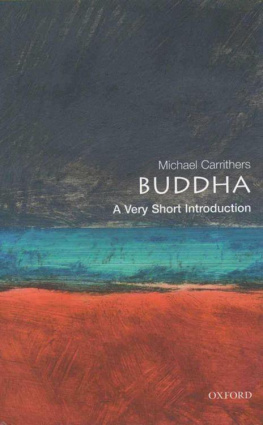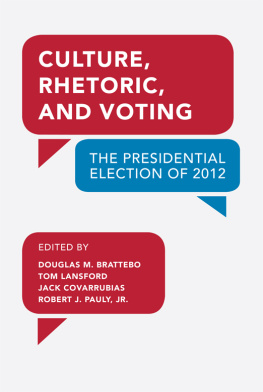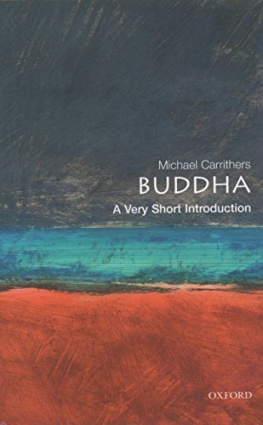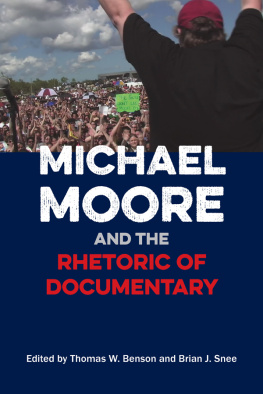
CULTURE, RHETORIC AND THE VICISSITUDES OF LIFE
Studies in Rhetoric and Culture
Edited by Ivo Strecker, Johannes Gutenberg University Mainz and Addis Ababa University, Stephen Tyler, Rice University, and Robert Hariman, Northwestern University
Our minds are filled with images and ideas, but these remain unstable and incomplete as long as we do not manage to persuade both ourselves and others of their meanings. It is this inward and outward rhetoric which allows us to give some kind of shape and structure to our understanding of the world and which becomes central to the formation of individual and collective consciousness. This series is dedicated to the study of the interaction of rhetoric and culture and focuses on the concrete practices of discourse in which and through which the diverse and often also fantastic patterns of cultureincluding our ownare created, maintained, and contested.
Volume 1
Culture & Rhetoric
Edited by Ivo Strecker and Stephen Tyler
Volume 2
Culture, Rhetoric, and the Vicissitudes of Life
Edited by Michael Carrithers
Volume 3
Economic Persuasions
Edited by Stephen Gudeman
First published in 2009 by
Berghahn Books
www.berghahnbooks.com
2009, 2012 Michael Carrithers
First paperback edition published in 2012
All rights reserved. Except for the quotation of short passages for the purposes of criticism and review, no part of this book may be reproduced in any form or by any means, electronic or mechanical, including photocopying, recording, or any information storage and retrieval system now known or to be invented, without written permission of the publisher.
Library of Congress Cataloging-in-Publication Data
Culture, rhetoric, and the vicissitudes of life / edited by Michael Carrithers.
p. cm. (Studies in rhetoric and culture ; v. 2)
Includes bibliographical references and index.
ISBN 978-1-84545-429-6 (hbk.) -- ISBN 978-0-85745-800-1 (pbk.)
1. Culture. 2. Social evolution. 3. Rhetoric. 4. Life. 5. Social problems. 6. Philosophical anthropology. I. Carrithers, Michael.
GN357.C849 2009
306dc22
2009012807
British Library Cataloguing in Publication Data
A catalogue record for this book is available from the British Library
Printed in the United States on acid-free paper.
ISBN: 978-0-85745-800-1 (paperback) ISBN: 978-0-85745-816-2 (ebook)
CONTENTS
Michael Carrithers
Jean Nienkamp
Michael Carrithers
Stevan M. Weine
Megan Biesele
Brigitte Nerlich
F.G. Bailey
Ellen B. Basso
Ralph Cintron
James W. Fernandez
PREFACE

All Research is based on the notion that the world is explicable, an idea with powerful attractions. The attractions were all the greater in the Colorado Springs of the late 50s and early 60s of the last century, which was dominated by the Cold War, evidenced to me every morning as I looked out over my breakfast cereal towards the entrance to the hydrogen bomb-proof headquarters of the North American Air Defence Command at the base of Cheyenne Mountain, plainly visible fifteen miles away. Colorado Springs then offered a choice of certainties and hopes in the face of instant annihilation. But the one that captured my imagination in high school was the scientific hope that we would develop the equations to understand things completely and, once we put in the initial conditions, we could predict and control the course of the future. I was encouraged in this by the scientific optimism of the period, and by the Foundation Trilogy of Isaac Asimov, which invented the idea of the predictive, and controlling, science of psychohistory. There went with this, too, the sanctioning of curiosity as a blameless and necessary emotion.
I have long since lost the megalomaniac certainties, but the convictions remain that curiosity is laudable and that authoritative explanation is worth the work. So far as I can see, without those convictions you can hardly engage in so peculiar an occupation as explaining the human world to people who always already have a way of understanding it.
University brought two discoveries that sharpened my curiosity. The first was that others might live in radically different worlds, by which I mean, they live among assumptions which force us to discover, and possibly overturn, the unsuspected grounds of our own world. This came to me first through reading the German Renaissance theorist of poetics, Martin Opitz, whose received Aristotelian ideas of poetry as a poor relation to philosophy were so very different from the Romanticism poets as the unacknowledged legislators of the world which I had imbibed with English lessons in school. The point was that thereafter the discovery of others worlds and, through them, my own world, would turn out to be an abiding obsession.
The other discovery, that ideas and attitudes could change so profoundly with time (e.g. as between Renaissance and Romanticism) seemed then to be a natural accompaniment: you could find your source of challenging otherness in the past, or beyond your front door today, but surprise was there for the meeting. Only much later did I discover that the understanding and explication of worlds rubs painfully against the understanding and explications of histories. And even when I chose to study a world through its varying histories in The Forest Monks of Sri Lanka, or gave an account of the world surrounding the history of The Buddha, the practical problem of finding a way of talking about both worlds and histories made me uneasy, but did not alert me to the real difficulties.
The difficulties only became apparent when I came face to face with evolutionary anthropologists, in this case the very congenial and interesting people at Durham University, whose ideas of explication were for the most part profoundly opposed to my own. Here was yet another world, not so much beyond my front door as inside it. True, my fellow socio-cultural anthropologists had already practiced a defence against evolutionists propensity to explain behaviour by some evolutionary advantage to be found in it, and that defence was this: since human beings have devised such an enormous array of different cultures, we can always show some variation of human behaviour which is not compassed in your ideas of human nature, so your explanation from general evolutionary advantage to the whole species must be wrong. But the problem was that, however useful that defence might be, socio-cultural anthropologists were depending entirely on the sheer existence of that vast variety of cultures, without any sense of the source or origin of those tremendous differences. Indeed, early in the twentieth century anthropologists, faced with the purely speculative histories of cultural differences that had gone before, gave up any systematic aspiration to account for cultural differences; and to top it off, the standard anthropological way of writing, in the ethnographic or habitual present, was in effect anti-historical in its implications and invited the assumption either that the people involved had no history because their culture and society were unchanging, or that historical explanation was in any case irrelevant. What this all meant was that, however I and my colleagues might routinely write our ways more or less gracefully around this impasse, we simply had no grounds on which to make sense of the cultural differences that lay at the root of our undertaking.











